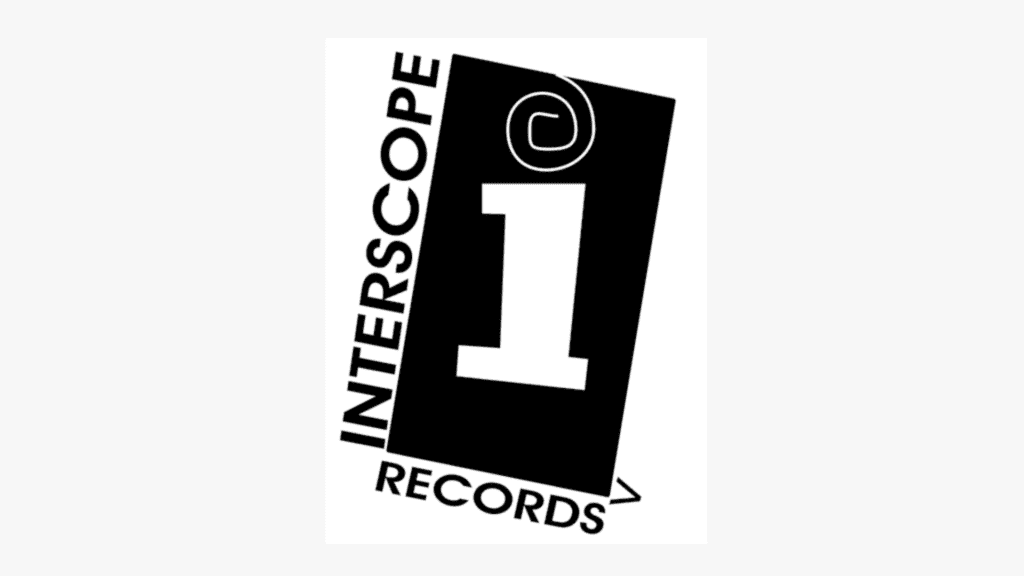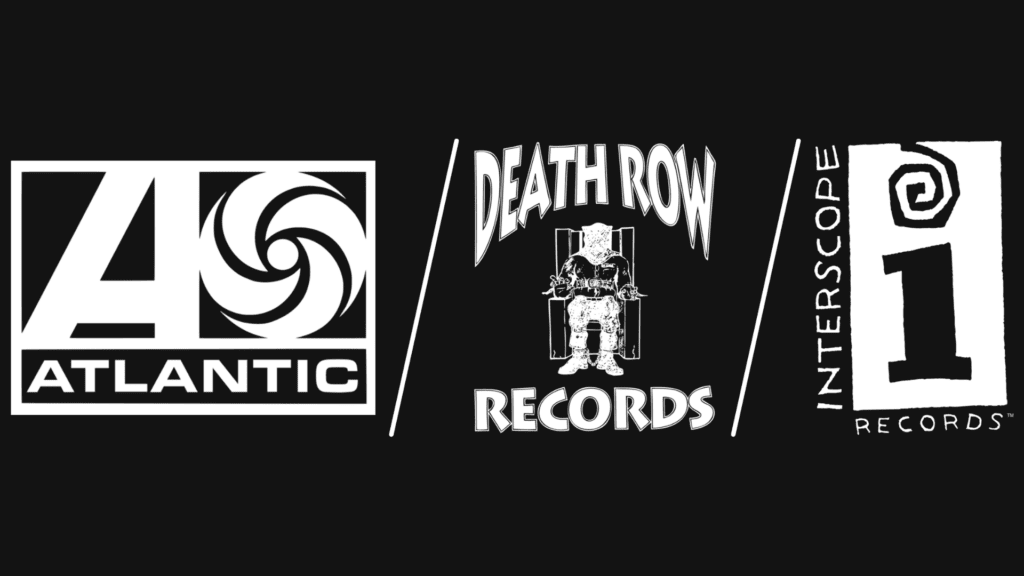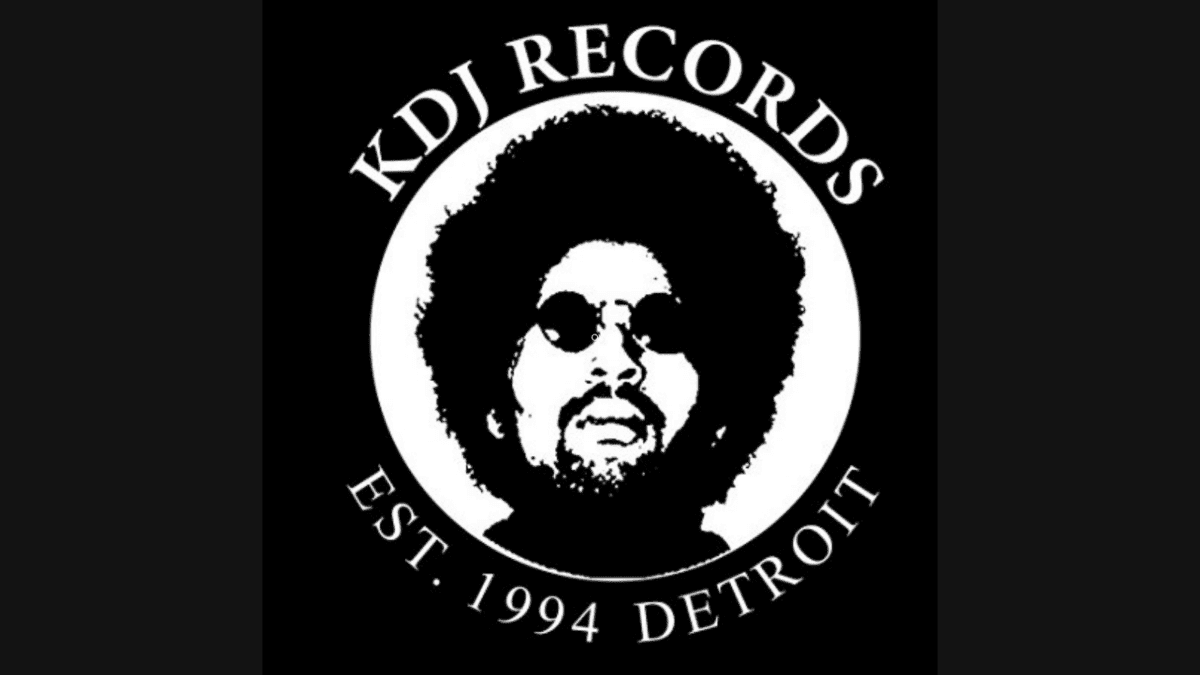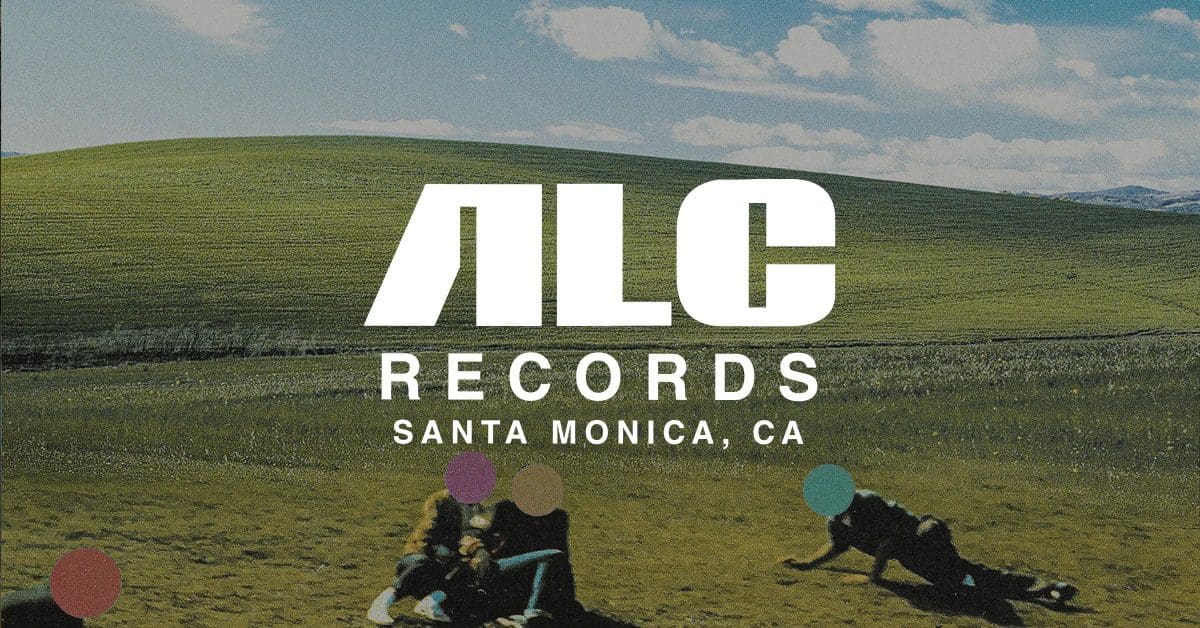Interscope Records is one of the music industry’s most successful and influential record labels. Founded in 1989, Interscope has been a driving force behind some of the past three decades’ most innovative and groundbreaking music. From hip-hop to alternative rock, Interscope has signed some of the biggest names in music, including Tupac Shakur, Dr. Dre, Eminem, Lady Gaga, Kendrick Lamar, and Billie Eilish. With a diverse artist roster and a strong commitment to artist development, Interscope has established itself as a leader in the music industry.
Let’s take a deep dive into the history of Interscope Records, from its early struggles to its current position as a powerhouse in the music industry. We’ll discuss the major label deal that transformed Interscope into a major player and explore the partnership between Interscope and music legends Jimmy Iovine and Dr. Dre that led to some of the label’s biggest successes.
Of course, no review of Interscope Records would be complete without discussing the leadership of the label’s current CEO, John Janick, his leadership style and how he’s helped guide Interscope to recent success.
But it’s not all sunshine and roses for Interscope Records. The label has faced its fair share of controversies and criticisms over the years, from accusations of promoting violence and misogyny in hip-hop to criticisms of its marketing tactics. We’ll examine these controversies and discuss how Interscope has responded to them.
Interscope Records – A History

Whether you’re a fan of hip-hop, alternative rock, or any other genre of music, there’s no denying the impact that Interscope Records has had on the music industry. So, sit back, relax, and join us as we explore one of the most successful record labels of all time.
Interscope Records has become a household name in the music industry, but the label’s success wasn’t always a sure thing. It took a major label deal to transform Interscope from a struggling independent label to a major player and helped Interscope become a dominant force in the music industry.
Interscope Records is a label that has come a long way since its humble beginnings. Despite initial struggles, Interscope quickly established itself as a powerhouse in the industry, thanks to a major label deal that transformed the company’s fortunes.
The major label deal that Interscope secured was with Atlantic Records in 1990. At the time, Interscope was still a relatively unknown label with limited resources. However, the deal gave Interscope access to Atlantic’s distribution network and marketing resources, which helped Interscope get its music into the hands of a much larger audience.
Interscope’s Major Label Deal: The Turning Point in Music Industry Dominance

The deal also gave Interscope the financial backing it needed to sign new artists and invest in new projects. With more money to work with, Interscope was able to take bigger risks and pursue more ambitious projects, such as the creation of its Death Row Records imprint, which went on to become one of the most successful labels in the history of hip-hop.
Of course, the label’s success was not just due to the major label deal alone. The partnership between Interscope and music legends Jimmy Iovine and Dr. Dre also played a significant role in the label’s success. Iovine, a seasoned music executive, brought his expertise in the music industry to Interscope and helped guide the label through its early years. Dr. Dre, on the other hand, was a superstar producer and rapper who helped bring a new sound to the label and was instrumental in creating some of Interscope’s biggest hits.
Together, Iovine and Dr. Dre helped Interscope become one of the most successful labels of the 1990s and beyond. Interscope’s success during this time was not just limited to the hip-hop genre; the label also signed successful pop, rock, and alternative acts, including No Doubt, Marilyn Manson, and Nine Inch Nails.
Today, Interscope remains one of the biggest labels in the music industry, with a roster that includes some of the biggest names in music. The label’s success is a testament to the power of taking risks, investing in talented artists, and building strong partnerships with industry leaders.
Uncovering the Beat: A Deep Dive into Interscope Records’ Legacy
Interscope Records was founded in 1989 by Ted Field, a music and film executive, and Jimmy Iovine, a veteran music producer and engineer. The label was initially launched as an independent operation but quickly gained traction after signing its first major artist, Gerardo Mejía, whose debut album “Mo’ Ritmo” went platinum. However, Interscope’s early success was short-lived, as the label faced criticism and controversy for its distribution of explicit content, particularly in the hip-hop genre.
Despite these challenges, Interscope persevered, and in 1991 the label signed its groundbreaking distribution deal with Atlantic Records. This partnership gave Interscope access to Atlantic’s vast resources and distribution network, allowing the label to release music on a much larger scale. Under this new deal, Interscope signed a number of innovative musicians, including Tupac Shakur, Dr. Dre, and Snoop Dogg, who became the faces of the label’s early success.
Throughout the 1990s, Interscope continued to sign influential and innovative artists, including Nine Inch Nails, No Doubt, and Marilyn Manson, cementing its place as a leader in alternative rock and popular music. The label’s partnership with Jimmy Iovine and Dr. Dre, who co-founded the successful hip-hop label Death Row Records, helped Interscope to become one of the most influential record labels of the era.
In 1998, Interscope was acquired by Universal Music Group, one of the largest music conglomerates in the world. Under Universal’s ownership, Interscope continued to expand its artist roster.
Today, Interscope Records is considered one of the foremost and most impactful record labels in the music industry, with a diverse artist roster and a strong commitment to artist development. The label continues to push boundaries and innovate, helping to shape the sound and culture of popular music for decades to come.
From the early years of Interscope’s partnership with Dr. Dre and Death Row Records to the label’s work with rock legends like The Rolling Stones and No Doubt, the label has consistently demonstrated a willingness to take risks and support innovative artists. we’ll delve deeper into some of the artists who have played a major role in Interscope’s success and examine the impact they’ve had on the music industry.
Icons of Interscope: Celebrating the Legendary Artists That Shaped Music History
Interscope Records is home to some of the music industry’s artists who have achieved the greatest success and influence. The label’s diverse roster spans multiple genres, from hip-hop to alternative rock to pop.
One of Interscope’s most successful and influential artists is Eminem. The rapper signed with the label in the late 1990s and quickly became one of its biggest stars, releasing multiple platinum-selling albums and winning numerous awards. Eminem’s raw, honest lyrics and unique delivery helped him to stand out in the crowded hip-hop landscape, and his influence on the genre is still felt today.
Another standout artist on Interscope’s roster is Lady Gaga. The pop superstar signed with the label in 2007 and quickly rose to fame with her debut album, “The Fame.” Since then, Gaga has become one of the biggest pop stars in the world, known for her catchy hooks, powerful vocals, and boundary-pushing performances.
Interscope is also home to some of the most innovative and boundary-pushing artists in alternative rock. Bands like Nine Inch Nails, No Doubt, and Marilyn Manson have all found success on the label, thanks in part to Interscope’s commitment to artist development and support.
In recent years, Interscope has continued to sign and develop some of the most exciting and innovative artists in music. Kendrick Lamar, one of the most successful and acclaimed hip-hop artists of the past decade, signed with Interscope in 2012 and has since released multiple critically acclaimed albums. Billie Eilish, a young pop star known for her unique sound and style, also signed with Interscope in 2016 and has quickly become one of the biggest names in music.
Overall, Interscope’s artist roster is a testament to the label’s commitment to supporting and developing innovative and visionary artists. With a diverse range of talent and a history of success, Interscope Records is sure to continue shaping the sound and culture of popular music for years to come.
The Sound Architect: A Look into John Janick’s Visionary Leadership at Interscope Records

John Janick is a music industry executive who currently serves as the CEO of Interscope Records. Janick began his career in the music industry as a teenager, playing in punk and hardcore bands in his hometown of Bethlehem, Pennsylvania. After attending college, Janick moved to Los Angeles to pursue a career in music.
In 1999, Janick founded Fueled By Ramen, an independent record label that quickly gained a reputation for signing innovative and successful artists. Under Janick’s leadership, Fueled By Ramen signed a number of breakthrough acts, including Panic! at the Disco, Paramore, and Twenty-One Pilots.
In 2012, Fueled By Ramen was acquired by Warner Music Group, and Janick was appointed as the head of Warner’s Elektra Records label. During his tenure at Elektra, Janick helped to sign and develop a number of successful artists, including Fitz and the Tantrums and Sturgill Simpson.
In 2014, Janick was named as the successor to long-time Interscope CEO Jimmy Iovine. Under Janick’s leadership, Interscope has continued to thrive, signing and developing some of the biggest names in music, including Billie Eilish, Juice WRLD, and DaBaby.
Janick’s leadership has been marked by a commitment to artist development and innovation. He has been instrumental in helping Interscope to stay at the forefront of the music industry, adapting to changes in technology and consumer behaviour to remain a leader in the digital age.
Overall, John Janick’s leadership has helped to cement Interscope Records as one of the most successful and influential record labels in the music industry. With a commitment to innovation and a track record of success, Janick and Interscope are sure to continue shaping the sound and culture of popular music for years to come.
Uncovering the Controversies and Criticisms Surrounding the Music Industry Giant:

Despite its success and influence, Interscope Records has faced a number of controversies and criticisms over the years. One of the most significant controversies surrounding the label is its association with gangsta rap and explicit lyrics.
In the 1990s, Interscope was one of the labels at the forefront of the gangsta rap movement, signing controversial artists like Dr. Dre and Snoop Dogg. Critics accused Interscope of glorifying violence, drug use, and misogyny, and the label faced calls for boycotts and censorship.
Interscope has also faced criticism for its business practices. In the early 2000s, the label was sued by several artists, including Courtney Love and 2Pac’s estate, over allegations of accounting irregularities and breach of contract. The lawsuits alleged that Interscope had withheld royalties and engaged in unethical practices, damaging the careers and financial well-being of its artists.
In recent years, Interscope has faced criticism for its role in the streaming era of the music industry. Some critics have accused the label of prioritizing streaming metrics and playlist placements over artist development and artistic integrity, leading to a homogenization of popular music and a lack of diversity on the charts.
Despite these controversies and criticisms, Interscope Records remains one of the music industry’s most successful and influential labels. The label has weathered many challenges over the years and continues to sign and develop some of the most innovative and groundbreaking artists in music. As the music industry continues to evolve, it will be interesting to see how Interscope adapts and continues to shape the sound and culture of popular music.
Exploring the Unique Features that Make Interscope Records Stand Out in the Music Industry
Interscope Records is celebrated as one of the preeminent and impactful record labels in the music industry, known for its ability to recognize and nurture innovative and revolutionary talents. Here are some of the key features that set Interscope apart from other labels:
Diverse Roster: Interscope has a diverse roster of artists, spanning a wide range of genres and styles. From pop and hip-hop to rock and country, the label has signed some of the biggest names in music, from American hip-hop star Kendrick Lamar to Irish icons U2.

Focus on Artist Development: Interscope is known for its commitment to artist development, helping to nurture and guide the careers of its artists from the early stages of their careers. The label’s executives work closely with their artists, providing them with resources and guidance to help them reach their full potential.
Innovation: Interscope is known for its willingness to take risks and embrace new technologies and business models. The label was one of the first to embrace streaming and digital distribution, and it continues to explore new ways to reach fans and promote its artists.
Collaborations: Interscope has a long history of fostering collaborations between its artists, encouraging them to work together and cross-pollinate their audiences. This has resulted in some of the most innovative and memorable music of the past few decades.
Marketing: Interscope is known for its effective marketing strategies, helping to build buzz and anticipation around its artists’ releases. The label has been at the forefront of social media and digital marketing, using these channels to reach fans and build engagement.
Industry Connections: Interscope is part of the larger Universal Music Group family, giving it access to a vast network of resources and industry connections. This allows the label to provide its artists with a wide range of services and opportunities, from international distribution to cross-promotion and collaboration with other Universal labels.
Closing Thoughts
Overall, Interscope Records is known for its ability to identify and develop some of the most innovative artists in music. With a focus on artist development, innovation, and collaboration, Interscope continues to shape the sound and culture of popular music.
As the music industry continues to evolve, Interscope will no doubt continue to play a central role in shaping the future of music. Whether by signing and developing new talent or by collaborating with established artists to create innovative and groundbreaking music, Interscope is sure to remain a dominant force in the music industry for years to come.










